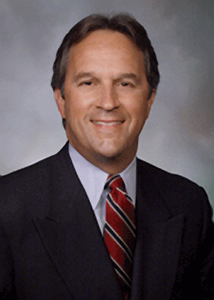After serving as IBM’s top lobbyist and helping pass the America Competes Act, Chris Caine ’78 founds own firm
 Like his firm’s namesake, Gerardus Mercator, who created a cylindrical map projection that shook the navigational world in 1569, Chris Caine ’78 is a forward thinker.
Like his firm’s namesake, Gerardus Mercator, who created a cylindrical map projection that shook the navigational world in 1569, Chris Caine ’78 is a forward thinker.
Drawing on nearly 30 years’ experience, the man once described as “IBM’s top lobbyist” is no stranger to innovation. A key player in the passage of the America Competes Act, he served as primary staff supporter to Sam Palmisano, IBM CEO and co-chair of the National Innovation Initiative (NII). Over the span of 18 months, beginning in 2004, NII brought together over 400 business, government, academic, and other leaders from across the nation to produce a roadmap for American competitiveness in the 21st century.
“We subsequently worked with many other countries around the world to conduct similar NIIs like Philippines, Morocco, and Vietnam,” says Caine, who was vice president, governmental programs, for 13 years of his 25-year tenure at IBM Corporation. “The most challenging aspect of the initiative was filtering the most critical and actionable ideas we received from the array of participants and then to get consensus among the NII leaders on 30 specific recommendations we would present to both President Bush and Congress for their action. We were quite successful in that both the President and Congress developed and enacted the America Competes Act, which had its basis in the recommendations of the NII. Hence, we contributed directly to the innovation and competitiveness of our country.”
He also led IBM’s government relations strategy and plan to secure government approval for the sale of IBM’s personal computer division to Chinese computer manufacturer Lenovo, the largest Chinese purchase of a U.S. business at the time.
Caine views Mercator XXI, which he founded in April, as a second professional dream. Through expertise in government relations and public policy, market access and market research, and innovation-driven economic development, Mercator helps clients navigate the areas where the global economy and governments intersect.
“The purpose of the firm is to help clients engage the global economy, and clients can be for-profit companies, not-for-profit organizations, think tanks, governments, any group that is interested in the global economy,” says Caine, Mercator’s president and CEO. “We have a skills-based offering of organizational, management, and operational skills to help clients execute and be accountable for that global execution. [Gerardus] Mercator put the world in precise order. Our aspiration is to help clients navigate the global economy for the 21st century.”
Caine’s passion for helping clients meet the challenges of the global economy has spilled over into his relationship with Lafayette. He was an instrumental player in the establishment of the policy studies program and often visits campus to meet with students and discuss pertinent topics facing today’s economy.
“I’m not aware of any other undergraduate programs that prepare students with the interdisciplinary skills that the 21st century economy is seeking, and those are diverse knowledge and insights that enable collaborative and innovative leadership,” says Caine, who earned his master’s degree in American government from Georgetown. “Policy studies is a leading-edge curriculum grounded in what organizations dealing with the 21st century economy need. I think Lafayette has a real capacity to make an impact in the 21st century as long as it allows itself to be bold and think in nontraditional ways about curriculum and instruction.”
Megan Jones ’11 and Daniel Stefan ’10 were this year’s recipients of the Caine Scholars Award for Global Leadership, Business and Policy. Last year, Christopher Haight ’09 received the inaugural award. Recipients are policy studies majors with proficiency in at least two languages and a secured internship. The award provides a $5,000 stipend for students who otherwise would be unable to take an unpaid internship.
“We want to enable policy studies majors to have practical work experiences that deepen their interdisciplinary leadership skills, and, in particular, we want to give awardees the opportunity to work at the intersection of leadership, business, and government,” says Caine. “Our hope is that this award enables experiences that will accelerate the individual’s capacity to make a meaningful impact after Lafayette. If we can, that will be a very rewarding outcome.”
His time on Lafayette’s Division I soccer team helped the philosophy major hone skills that have benefitted him throughout his career.
“It was a good chance to deepen my experience in team sports and how to make a contribution to a group, while at the same time, be focused on what it takes to achieve excellence,” he says.
 Like his firm’s namesake, Gerardus Mercator, who created a cylindrical map projection that shook the navigational world in 1569, Chris Caine ’78 is a forward thinker.
Like his firm’s namesake, Gerardus Mercator, who created a cylindrical map projection that shook the navigational world in 1569, Chris Caine ’78 is a forward thinker.